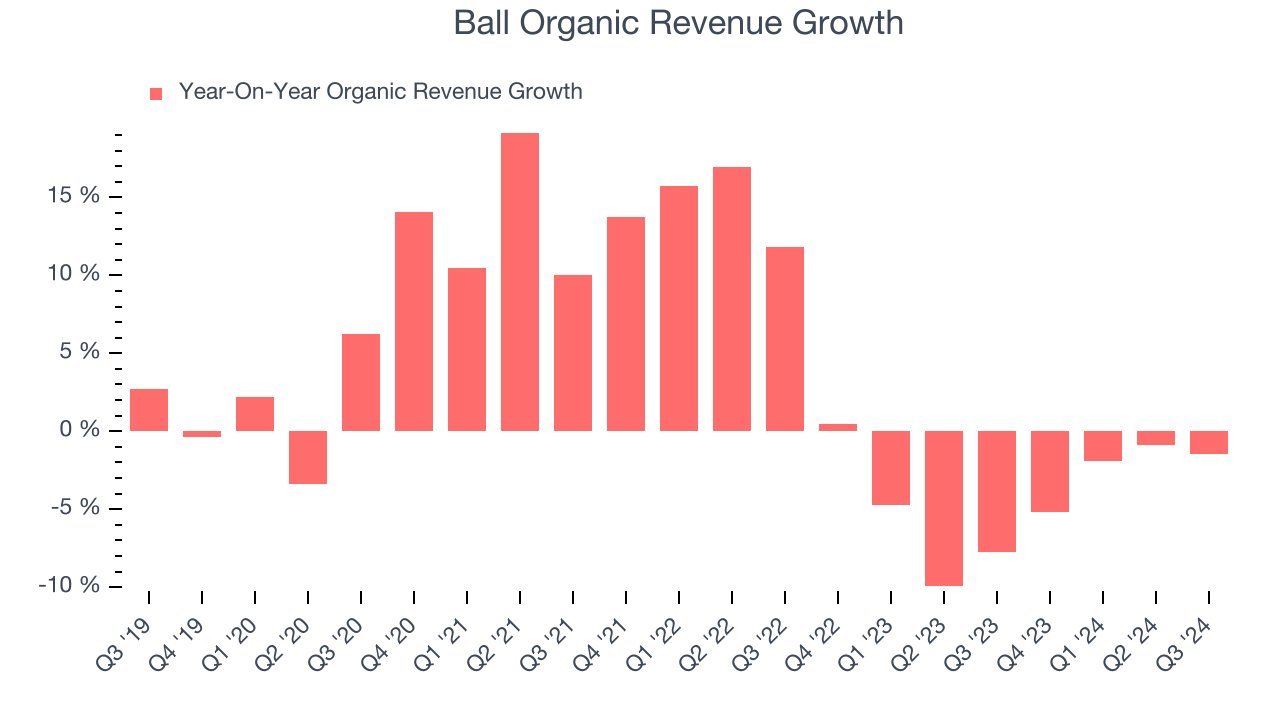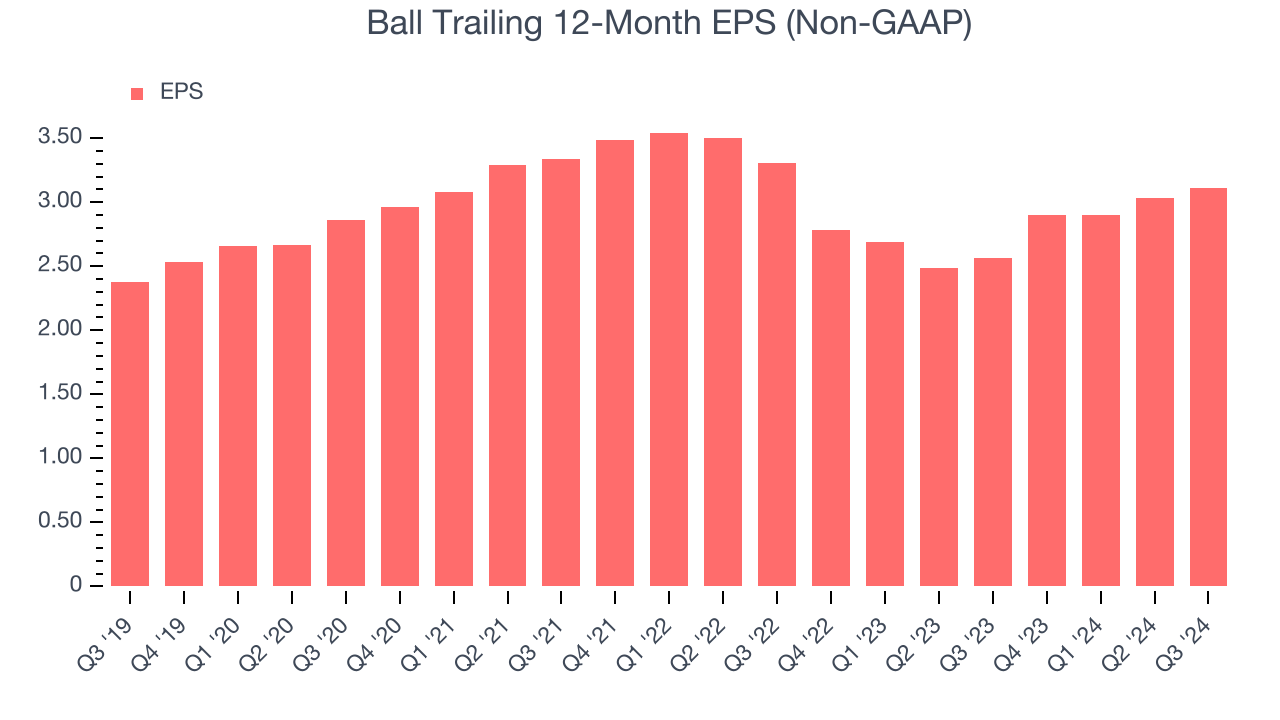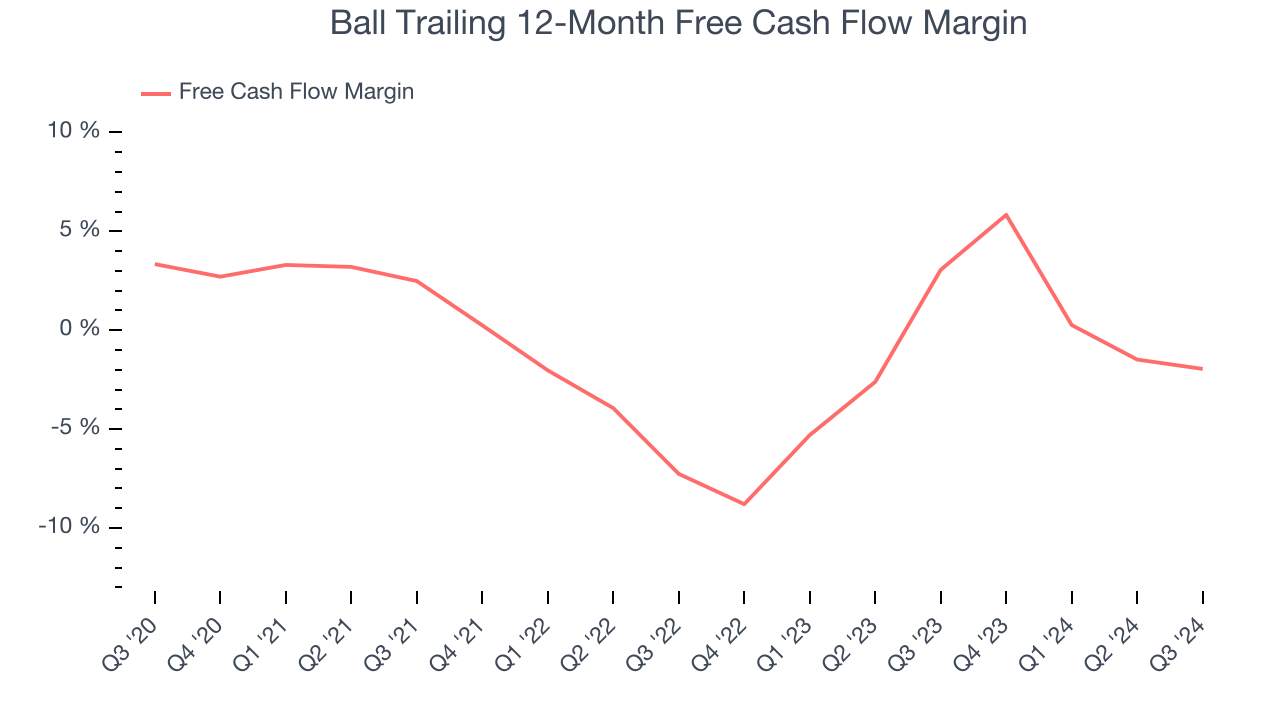
Over the last six months, Ball’s shares have sunk to $57.55, producing a disappointing 17.5% loss - a stark contrast to the S&P 500’s 13.5% gain. This was partly driven by its softer quarterly results and might have investors contemplating their next move.
Is now the time to buy Ball, or should you be careful about including it in your portfolio? Dive into our full research report to see our analyst team’s opinion, it’s free.Even with the cheaper entry price, we don't have much confidence in Ball. Here are three reasons why you should be careful with BALL and a stock we'd rather own.
Why Do We Think Ball Will Underperform?
Started with a $200 loan in 1880, Ball (NYSE: BLL) manufactures aluminum packaging for beverages, personal care, and household products as well as aerospace systems and other technologies.
1. Core Business Falling Behind as Demand Declines
Investors interested in Industrial Packaging companies should track organic revenue in addition to reported revenue. This metric gives visibility into Ball’s core business because it excludes one-time events such as mergers, acquisitions, and divestitures along with foreign currency fluctuations - non-fundamental factors that can manipulate the income statement.
Over the last two years, Ball’s organic revenue averaged 3.9% year-on-year declines. This performance was underwhelming and implies it may need to improve its products, pricing, or go-to-market strategy. It also suggests Ball might have to lean into acquisitions to grow, which isn’t ideal because M&A can be expensive and risky (integrations often disrupt focus). 
2. EPS Barely Growing
Analyzing the long-term change in earnings per share (EPS) shows whether a company's incremental sales were profitable – for example, revenue could be inflated through excessive spending on advertising and promotions.
Ball’s EPS grew at an unimpressive 5.6% compounded annual growth rate over the last five years. On the bright side, this performance was better than its 1.3% annualized revenue growth and tells us the company became more profitable on a per-share basis as it expanded.

3. Free Cash Flow Margin Dropping
If you’ve followed StockStory for a while, you know we emphasize free cash flow. Why, you ask? We believe that in the end, cash is king, and you can’t use accounting profits to pay the bills.
As you can see below, Ball’s margin dropped by 5.3 percentage points over the last five years. Almost any movement in the wrong direction is undesirable because of its already low cash conversion. If the trend continues, it could signal it’s becoming a more capital-intensive business. Ball’s free cash flow margin for the trailing 12 months was negative 2%.

Final Judgment
We cheer for all companies making their customers lives easier, but in the case of Ball, we’ll be cheering from the sidelines. After the recent drawdown, the stock trades at 16.8× forward price-to-earnings (or $57.55 per share). This valuation multiple is fair, but we don’t have much confidence in the company. There are superior stocks to buy right now. We’d recommend looking at Meta, a top digital advertising platform riding the creator economy.
Stocks We Like More Than Ball
With rates dropping, inflation stabilizing, and the elections in the rearview mirror, all signs point to the start of a new bull run - and we’re laser-focused on finding the best stocks for this upcoming cycle.
Put yourself in the driver’s seat by checking out our Top 6 Stocks for this week. This is a curated list of our High Quality stocks that have generated a market-beating return of 175% over the last five years.
Stocks that made our list in 2019 include now familiar names such as Nvidia (+2,691% between September 2019 and September 2024) as well as under-the-radar businesses like United Rentals (+550% five-year return). Find your next big winner with StockStory today for free.

















